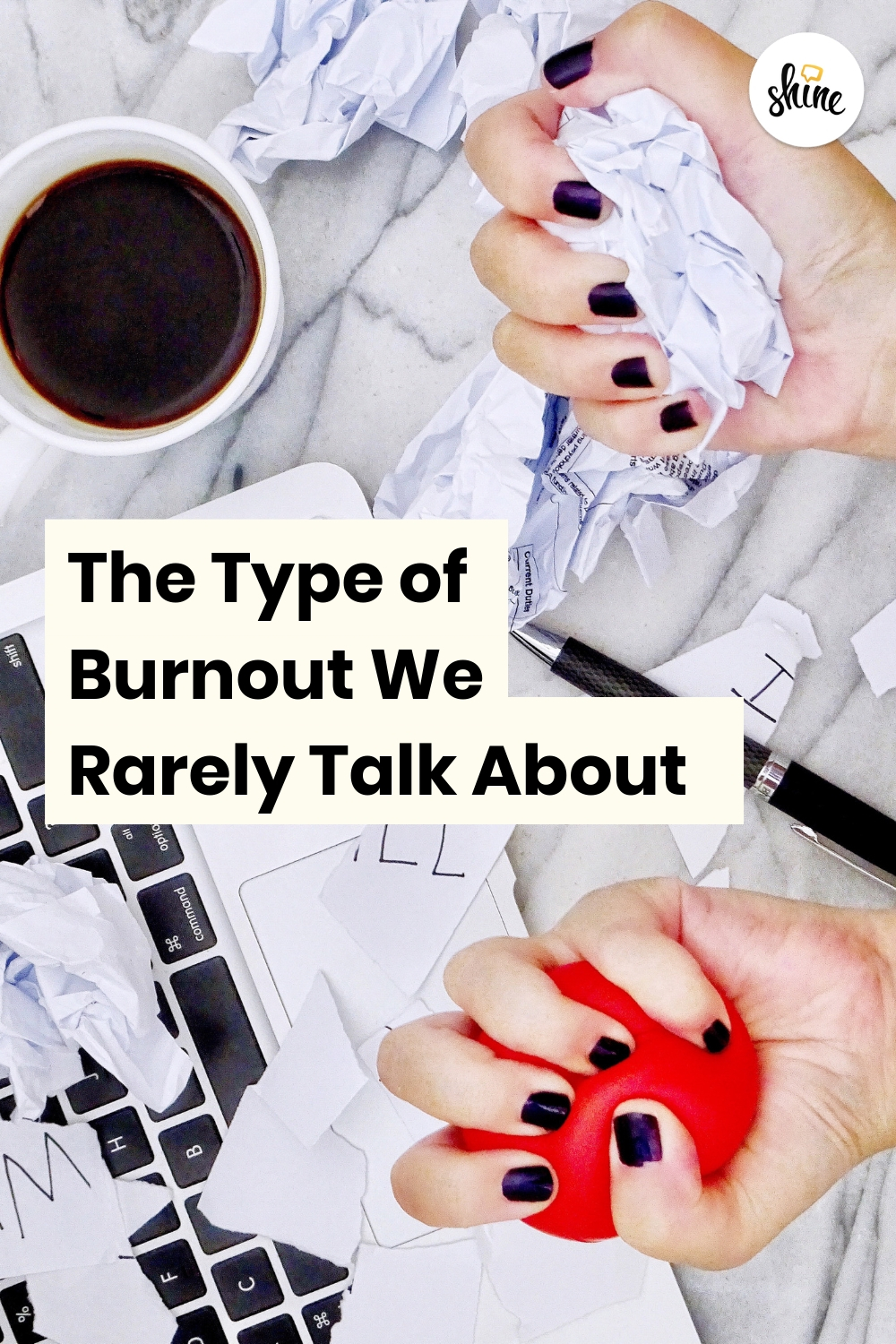The Type of Burnout We Rarely Talk About
"Do what you love and you’ll never work a day in your life.”
That saying—one of the many by the great unknown—has been floating around on the Internet for as long as I’ve been googling "inspiring quotes" (a long, long time).
It sums up an ideal situation: find a job that aligns with your values, and it won't feel like a job at all. Sounds amazing—in theory. But it wasn’t until recently that I realized I had blindly followed the wisdom of this mysterious person without recognizing that it didn’t necessarily work for me.
Doing what you love and pouring all your energy into it may be the key to someone else's happiness. But when I turned what I loved—my passion for photography—into my 24/7, it took away the fun of what lead me to it in the first place.
Instead of finding joy whenever I picked up a camera, my outlet became an all-consuming and energy-sucking endeavor. I started losing sleep, getting frustrated, and overwhelmed by a wiped-out feeling. "This is your dream!" I would tell myself, as I stayed up late editing hundreds of photos from a day of shooting. And while it still may be, it turns out I was experiencing a certain degree of burnout we rarely talk about: passion burnout.
The Perils of Passion Burnout
Burnout was first coined by psychologist Herbert Freudenberger in the 1970s, and, back then, it applied to doctors and nurses—or professions that served others. Today, burnout is widely accepted as the “the consequences of severe stress” that can be experienced by anyone. It also looks and feels different for folks with different identities and life experiences, as BuzzFeed’s Anne Helen Petersen examined in the follow-up to her viral expose on millennial burnout.
But passion burnout is also a very real thing, shared across generations. It’s when that quote—“do what you love…”—goes totally haywire, and you end up dreading the thing that you fell in love with because of mental and physical exhaustion. It’s what happens when you go hard—but don’t necessarily go home, ever.
Passion burnout is when that quote—'do what you love…'—goes totally haywire, and you end up dreading the thing that you fell in love with because of mental and physical exhaustion.
In 2016, researchers dived deep into whether or not certain levels of passion impacted how employees experienced burnout. In their study, they broke down passion into two different types: harmonious passion and obsessive passion.
Harmonious passion is when your work is motivating because it brings a certain level of pride and contentment. Those who experience harmonious passion find their work to be a key part of them, but still reported that they found time to take breaks outside of the day-to-day hustle.
On the other hand, obsessive passion occured in people who were passionate about their work because of status, money, or other rewards, as reported by Inc. Their research showed those that found themselves falling under the "obsessive passion" category experienced burnout more than those under the "harmonious passion."
But if you’ve shifted from a "harmonious passion" to an "obsessive passion"—don’t worry. Recovering takes work and time, but research shows it's definitely possible.
Here are some steps to take to recover from—or avoid—passion burnout.
Remind Yourself of Your ‘Why’
It’s easy to get lost in the hustle of every day, so taking a step back to remind yourself of why you have a passion for something is key to shifting to a more "harmonious" state.
Try remembering the beginning, when you first discovered your passion, and write down the feelings you experienced then. Hold onto these, and try to find ways to spark them once more in your life.
It’s also important to take note of why you might be feeling burned out, whether it's with work, a hobby, a side-hustle, or even a friend or partner. Write down negative feelings you have towards that thing that's now overwhelming—without judgement—and notice what might've tipped you into burnout.
Write down negative feelings you have towards that thing that's now overwhelming, and notice what might've tipped you into burnout.
For me: Skipping sleep to edit photos left me feeling sluggish and cranky—not energized, like I usually get from working on my photos. That was my sign to cut back on the late-night editing hours, even if it feels productive at the time.
The Magic Words: ‘No’ and Balance
While a certain level of obsessive passion can come in handy, like when starting a side-hustle, it’s important to keep things in perspective and actively work to reign your energy in when you feel spread too thin. That's where your trusty friend "no" comes in to help you set boundaries.
And in the case of passion burnout, that might mean saying "no" to yourself. Sure, you'd love to work on that presentation or song on your guitar for 14 hours straight, or have a marathon catchup session with a friend. But if it means sacrificing taking care of yourself, it's best to say "no" and/or dial back your plans to create more balance.
By creating personal and professional boundaries, you’re protecting your energy and ensuring that you’ll have time to take breaks and prioritize other areas of your life that might need attention, too.
Quit The Comparisons
Have you ever scrolled through Instagram or Twitter and feel bad at the sight of other people living out their dreams with what seems like so much ease? I can’t be the only one.
Remind yourself that social media is a highlight reel, and not all energy is created equal. Maybe your friend from college truly thrives on that 80-hour #livingthedream work week—but that doesn't mean you have to force yourself to do the same. Just like balance looks different for all of us, so does acting on our passions.
Maybe your friend from college truly thrives on that 80-hour #livingthedream work week—but that doesn't mean you have to force yourself to do the same.
Whenever those "If I'm truly passionate, I'd be working as hard as them" thoughts creep in, try focusing on small wins you’ve accomplished recently. Shifting your thoughts into positive ones can combat the slippery slope of negative thinking that burnout can cause.
Sleep Over Everything
When we don’t have enough sleep, every small hiccup and challenge can feel 10x worse than it is in reality. Sleep helps us think clearer, and studies have proven that too little sleep is a direct factor in burning out fast.
Take time to optimize your sleeping schedule by starting small—like slowly creating an evening routine to lull you into sleep. Maybe it’s a cup of tea before bed, or a chapter of a book. Whatever works for you, stick with it and it can help you wake up with a more focused mind and healthier outlook.
Bottom line: You can run on passion—but you can't run on passion alone. Trust that taking small breaks from that thing you love will help you sustain that love, not derail it.
Read next: It's Time to Stop Wearing Burnout as a Badge of Courage

Shine is supported by members like you. When you buy through links on our site, we may earn an affiliate commission. See our affiliate disclosure for more info.


